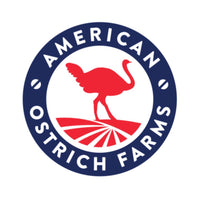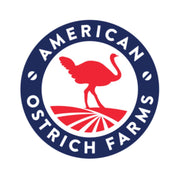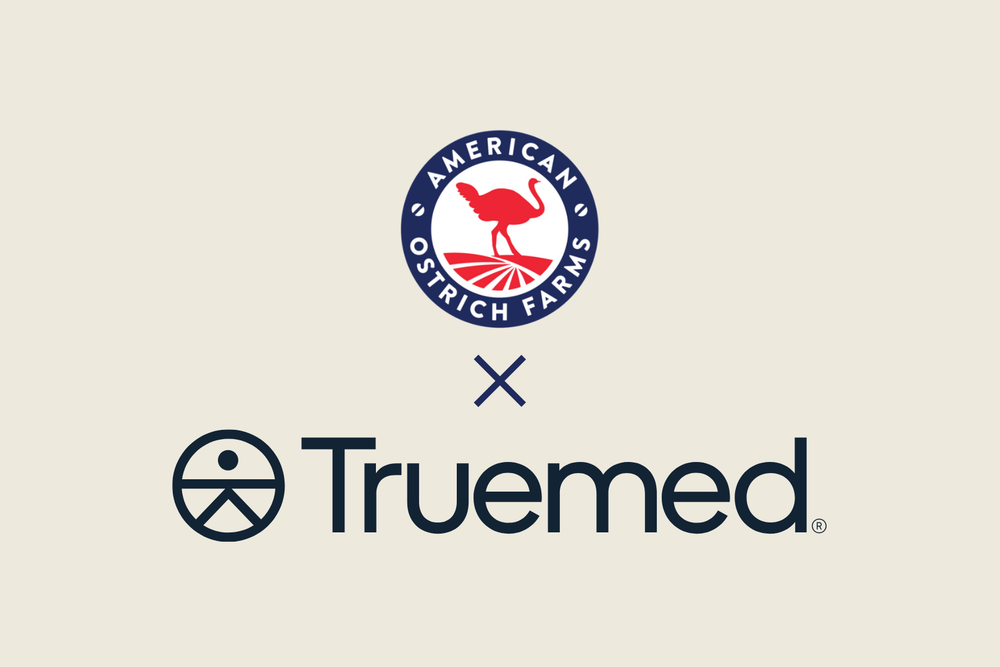SMALL BUSINESS SPOTLIGHT: TREASURE VALLEY'S AMERICAN OSTRICH FARMS PROMOTES FOOD SUSTAINABILITY, CONSUMER HEALTH
Editor’s Note: This week, the IBR is introducing a new regular feature, Small Business Spotlight. We are highlighting the companies that form the backbone of any community— the small, often family-run, businesses.
When Alexander McCoy, founder and CEO of American Ostrich Farms, first tried ostrich meat, he was training for a full-length Ironman triathlon in South Africa. He was amazed at how much the meat tasted like beef, but what was most surprising was the energy he had after he ate it. After consuming his first ostrich steak, he ran 15 miles and soon fell in love with not just the flavor, but with its low fat, low cholesterol and rich iron properties.
When McCoy headed back to the United States, he was disappointed that ostrich meat was not widely available here, so he decided to jump on the opportunity to provide the protein to Americans and help transform the way they think about red meat.
In 2013, McCoy began American Ostrich Farms in Kuna, offering a variety of ostrich products including 97 percent lean burgers and steak meat, premium pet foods and treats, all-natural moisturizing oils and soaps, ostrich leather, eggshells and feathers for crafts and decorating.
The company currently sells most of its products via their website, but McCoy will soon introduce the products to local restaurants. Since launching the business, McCoy has been determined to become an expert on the world’s largest bird.
“We spent several years learning as much as possible about ostriches – in particular, how to raise them at scale without compromising on quality in any way – and we are starting to reap the rewards of patiently investing heavily to ensure our business model and ostrich husbandry skills were sufficiently excellent before we began to scale.”
McCoy predicts that 2019 will be the company’s “breakout year,” with revenue growth projected “in excess of 100 percent for the foreseeable future.”
Recently, American Ostrich Farms became involved with the Chipotle Aluminaries Project, a program created by the Mexican restaurant chain that helps forge a path toward food sustainability. American Ostrich Farms is one of eight “growth-stage ventures” partnering with Chipotle’s Cultivate Foundation in the seven-month long accelerator program. Each company receives mentorship and direct coaching from leading chefs and entrepreneurs; participation in a five-day boot camp in Newport Beach, California; free Chipotle burritos for a year and Chipotle catering for their office.
Chipotle launched the program with Uncharted, a nonprofit organization “using the DNA of an entrepreneurial accelerator to tackle major social problems like urban poverty and food deserts.”
 McCoy said that being part of the Chipotle Aluminaries Project will help his company reach its full potential. He’s hopeful that local business leaders and consumers will be inspired to “not only give locally-raised ostrich a try, but more importantly, to realize that our food choices are incredibly important.”
McCoy said that being part of the Chipotle Aluminaries Project will help his company reach its full potential. He’s hopeful that local business leaders and consumers will be inspired to “not only give locally-raised ostrich a try, but more importantly, to realize that our food choices are incredibly important.”
“Ostrich tastes like a delicious, lean filet mignon, but leaves a fraction of the environmental footprint – compared to beef, ostrich uses 1/3 the fresh water, 1/50 the land, and emits less than 1/10 the greenhouse gas per pound produced,” McCoy said. “Consumers need a red meat option that helps ensure our planet will be able to produce food for generations to come, and when it comes to red meat, ostrich is the best choice you can make.”
The future for American Ostrich Farms is bright and McCoy is looking forward to helping bolster awareness for this new red meat category.
“Long-term consumer trends toward healthier and more sustainable food sources are a huge tailwind for ostrich and as American Ostrich Farms is at the vanguard of this movement and industry, we will have accomplished our goals only when ostrich is as prevalent in American food culture as any other red meat.”
Caitlin Leibert, director of sustainability at Chipotle, said the company is committed to creating a more sustainable food future.
“Together, with these ventures and the entrepreneurs of tomorrow, we know we can make a real impact,” she said.
This article was originally published by The Idaho Business Review.








